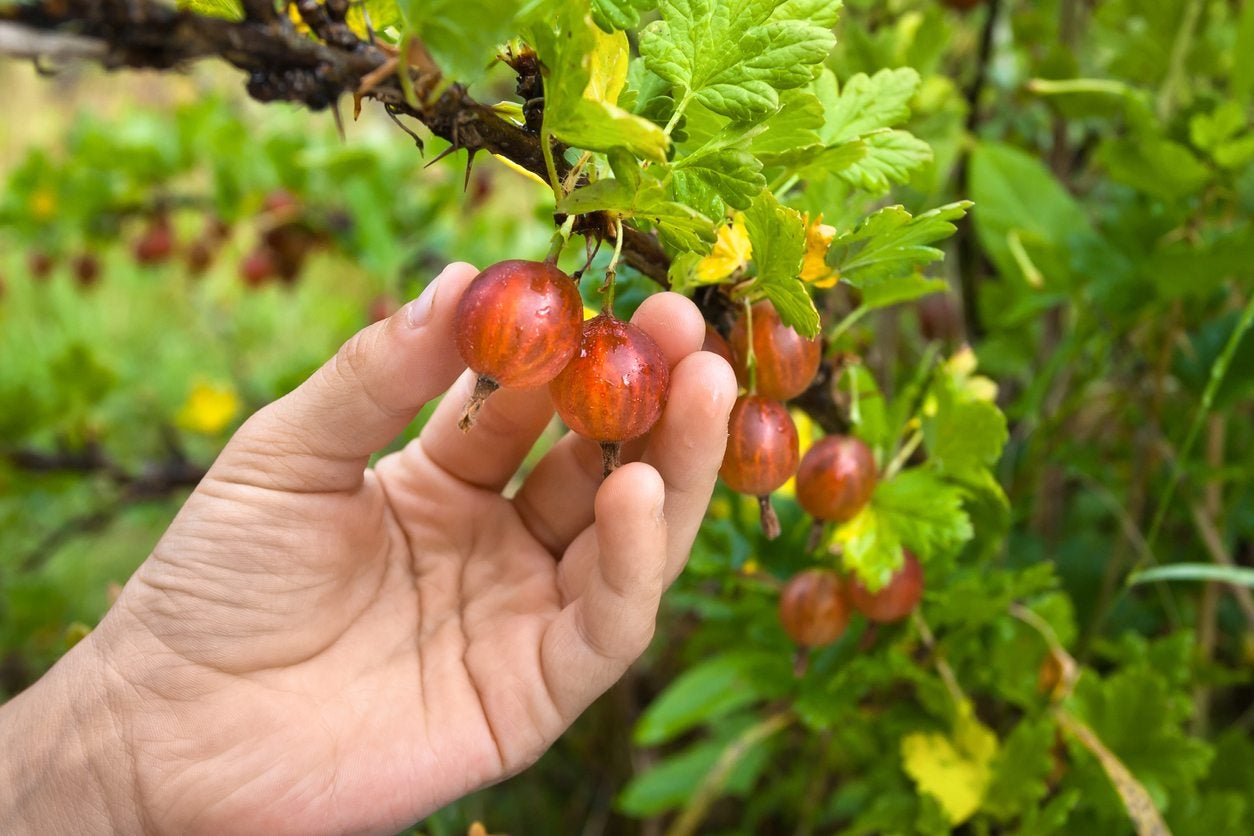
Gooseberries are divided into either European (Ribes grossularia) or American (R. hirtellum) types. These cool weather berries thrive in USDA zones 3 to 8 and can be eaten fresh or turned into delicious jams or jellies. All is well and good, but how do you know when to harvest gooseberries? Read on to find out how to harvest gooseberries and about gooseberry harvest time.
When to Harvest Gooseberry Plants
In order to determine when to begin picking gooseberries, it’s a good idea to know how you are going to utilize them. Why is that? Well, the great news is that you can harvest gooseberries that are not fully ripe. No, they don’t continue to ripen but if you are going to use them for preserves, they actually work better when they are unripe, firm, and slightly bitter. If you want to pick the ripe berries, color, size, and firmness will give you an idea about when to begin harvesting gooseberries. Some types of gooseberries turn red, white, yellow, green, or pink when it’s gooseberry harvest time, but the best way to tell if they are ripe is to squeeze them gently; they should have a little give. As to size, American gooseberries get to about ½ inch (1 cm.) long and their European counterparts to about an inch (2.5 cm.) in length. Gooseberries don’t ripen all at once. You’ll be harvesting gooseberries over a nice, long, four to six weeks beginning in early July. Plenty of time to harvest very ripe berries suited to eating out of hand and plenty of underripe berries to preserve.
How to Harvest Gooseberries
Gooseberries have thorns, so before picking gooseberry plants, put on a good, thick pair of gloves. Although this isn’t an absolute, it does help avoid injury. Commence tasting. Really, the best way to decide if the berry is where you want it in the ripening stage is to taste a few. If the berries are at the stage you want them, just pull the individual berries off the stems and put them in a bucket. Don’t bother to pick the ones up off the ground. They are overripe. To prolong the freshness of the berries, refrigerate them. You can also harvest the gooseberries en masse. Place a canvas, plastic tarp, or old sheets on the ground under and around the gooseberry bush. Shake the branches of the bush to dislodge any ripe (or almost ripe) berries from the limb. Make a cone of the tarp by gathering the edges together and funnel the berries into a bucket. Continue to harvest the gooseberries weekly as they ripen on the plant. Eat the ripe berries immediately or freeze them for later use. Unripe berries can be made into preserves or otherwise canned.
Sign up for the Gardening Know How newsletter today and receive a free copy of our e-book "How to Grow Delicious Tomatoes".

Amy Grant has been gardening for 30 years and writing for 15. A professional chef and caterer, Amy's area of expertise is culinary gardening.
